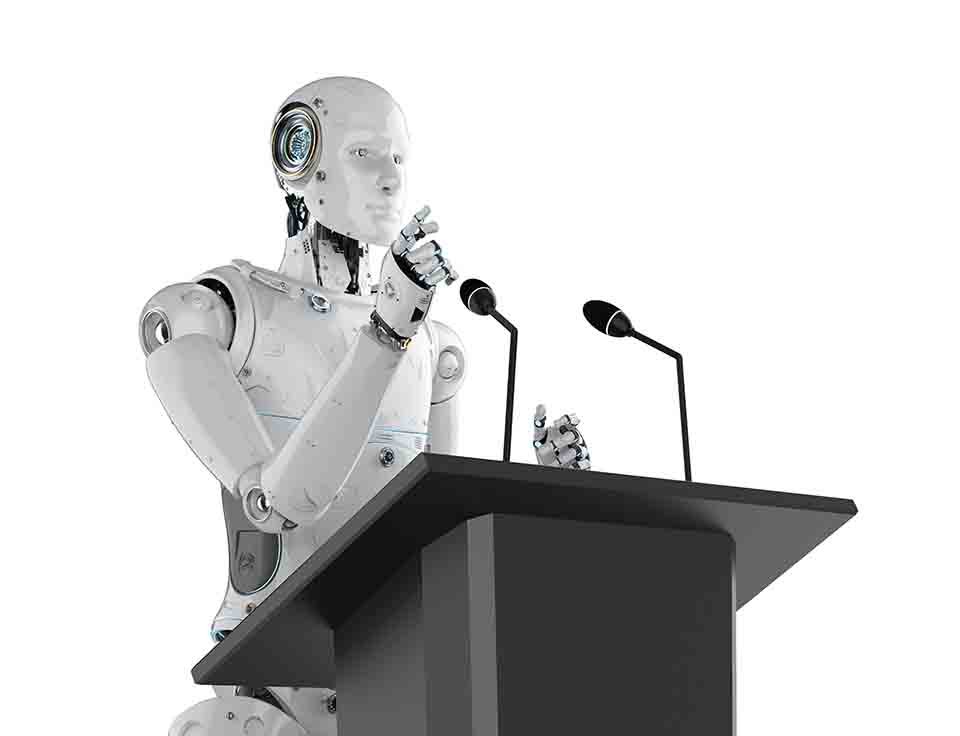Introduction
Debate has been a cornerstone of human communication and decision-making for centuries, evolving alongside societal developments. Today, we find ourselves witnessing a transformative era where technology and emerging trends are not merely shaping but redefining the landscape of debate and public discourse. The traditional formats of debate, often confined to academic institutions and public forums, are now expanding into digital realms, fostering broader participation and inclusivity.
The advent of new technologies, from sophisticated artificial intelligence algorithms to social media platforms, has introduced innovative ways for disseminating information, forming opinions, and engaging in discourse. These advancements are contributing to a more dynamic and interactive environment, where ideas can be exchanged in real-time, and diverse voices can be heard. This transformation is not only altering how debates are conducted but also impacting the very manner in which public discourse unfolds.
The significance of these changes cannot be overstated. As we delve deeper into the influence of technology on debate, we will examine how specific areas, such as the rise of virtual debate platforms, the role of artificial intelligence in argumentation, and the increasing importance of digital literacy, are being affected. Each of these facets holds the potential to either enhance or challenge traditional notions of debate, shaping the future trajectory of public discourse.
Understanding these shifts is crucial for those involved in education, politics, and media, as the implications extend far beyond the debate community. They touch upon the fundamental ways in which information is shared and processed, ultimately influencing public opinion and decision-making processes. With technology and emerging trends at the forefront, the future of debate promises to be markedly different from its historical counterparts, offering both opportunities and challenges that merit close examination.
Virtual and Online Debates
The rise of virtual and online debates has dramatically transformed how discussions are conducted, especially magnified by the COVID-19 pandemic. Technological advances have enabled participants from various locations worldwide to engage in meaningful conversations about pressing issues, regardless of geographical and time zone constraints. This paradigm shift has not only broadened the scope of participants but also democratized the debate landscape, making it accessible to a more diverse range of voices.
One of the significant advantages of virtual debates is accessibility. Online platforms allow individuals who may have been previously excluded due to physical location or logistical constraints to now partake in discussions. This inclusivity fosters a more comprehensive dialogue, as a wider array of perspectives can be represented. Participation can be more evenly distributed, lessening the barriers that traditionally inhibited global conversation.
However, virtual debates also present their own unique set of challenges. Technological barriers, such as stable internet connections and access to appropriate devices, can impede some individuals from fully participating. Furthermore, the lack of physical presence can detract from the nuances of face-to-face communication, such as body language and immediate audience feedback. This can lead to misunderstandings and reduced engagement during discussions.
Another challenge lies in moderating online debates effectively. The virtual environment requires robust tools to manage participants, guide the flow of discussion, and ensure that everyone has a fair chance to speak. These tools must be adept at handling disruptions such as background noise and technical glitches, which can distract from the discourse.
Despite these challenges, the persistent advancements in virtual communication technologies promise to refine and enhance online debate experiences. As high-speed internet becomes more ubiquitous and platforms evolve to address current limitations, the future of virtual debates looks promising. The rise of online debates is set to continue shaping the public discourse, ensuring that more voices can be heard on critical global issues.
The Role of Social Media
Social media platforms have undeniably transformed the landscape of public discourse and debate. These digital arenas have become indispensable tools for individuals and organizations alike, allowing for the widespread dissemination of opinions and the facilitation of robust dialogue. Through platforms such as Twitter, Facebook, and Instagram, users are able to rapidly share their thoughts, interact with diverse perspectives, and advocate for their beliefs, effectively democratizing the process of opinion-sharing.
One of the most significant advantages of social media in debates is its ability to amplify underrepresented voices. Historically marginalized groups now have a platform to voice their concerns and advocate for change, reaching a global audience that might otherwise have been inaccessible. Additionally, social media offers real-time engagement, enabling users to respond to breaking news and participate in unfolding debates, thus fostering a more dynamic and immediate form of public discourse.
However, the role of social media in debate is not without challenges. The same features that facilitate open dialogue also enable the rapid spread of misinformation. False information can be disseminated just as quickly as accurate content, sometimes even faster due to its sensational nature. This prevalence of misinformation can distort public understanding and hinder constructive debate. Furthermore, the echo chamber effect, where individuals are exposed primarily to opinions and information that reinforce their existing beliefs, can contribute to polarization. This ideological segregation often stifles meaningful dialogue and understanding across differing viewpoints.
Despite its challenges, the role of social media in shaping public debate cannot be overstated. By bringing together a multitude of voices and foster engagement on a massive scale, social media continues to evolve as a powerful force in public discourse. It remains crucial for users to approach these platforms critically, verifying information and remaining open to diverse perspectives, to mitigate the negative impacts while maximizing the potential for thoughtful and informed debate.
Artificial Intelligence in Debates
Artificial Intelligence (AI) is at the forefront of a technological revolution, permeating various facets of human life, including the dynamic realm of debates. AI-powered systems are transforming how debates are conducted by offering unprecedented capabilities in analyzing large datasets, providing insightful feedback, and automating complex decision-making processes. These advancements are poised to reshape the traditional debate landscape and elevate public discourse to newer heights.
One of the most significant contributions of AI in debates is its ability to process and analyze vast amounts of data swiftly. This capability enables debaters to access extensive information and evidence, essential for constructing well-founded arguments. AI systems can sift through scholarly articles, news reports, and other sources to extract relevant data, saving considerable time and effort. Consequently, debaters can focus more on the quality and delivery of their arguments rather than on exhaustive information gathering.
AI technology also excels in providing real-time feedback on the arguments presented during debates. Advanced AI algorithms can evaluate the coherence, logical structure, and persuasiveness of arguments, offering suggestions for improvement. By utilizing natural language processing and machine learning techniques, these systems can identify logical fallacies, biased reasoning, and other weaknesses in arguments, thereby enhancing the overall quality of the debate. Such immediate and objective feedback is invaluable for both seasoned debaters and novices aiming to hone their skills.
Moreover, AI-driven tools can assist in moderating debates by ensuring a fair and balanced discourse. These tools can track speaking times, manage turn-taking, and even flag inappropriate content, fostering a constructive and respectful debating environment. By automating certain aspects of debate management, AI reduces the burden on human moderators, allowing for a smoother and more efficient debate experience.
In essence, AI is revolutionizing debates by offering sophisticated data analysis, objective feedback, and improved moderation capabilities. As these AI technologies continue to evolve, they hold the potential to further enhance the effectiveness and integrity of debates, ultimately contributing to more informed and rational public discourse.
Gamification of Debates
In recent years, the incorporation of gamification into the realm of debates has gained significant traction. Gamification, the application of game-elements in non-game contexts, has shown immense potential in revitalizing how debates are conducted and perceived. By integrating elements such as point scoring, leaderboards, and interactive challenges, gamification aims to make debates more engaging and interactive for participants and audiences alike.
One of the primary strategies utilized in gamifying debates is the implementation of scoring systems. Participants can earn points based on the strength and persuasiveness of their arguments, as well as their ability to effectively counter their opponents’ points. This competitive aspect not only motivates debaters to perform at their best but also adds a layer of excitement for spectators. Leaderboards, another common feature, serve to recognize top performers, fostering a sense of achievement and encouraging continuous improvement.
In educational and training settings, gamification has proven particularly valuable. Tools such as debate apps and digital platforms have been developed to facilitate more dynamic and interactive learning experiences. Educators can use these tools to create virtual debate tournaments, complete with rounds, timed speeches, and instant feedback. This structured yet flexible approach aids in enhancing participation rates and knowledge retention among students. Moreover, the use of interactive features, such as audience voting and real-time analytics, provides immediate insights into performance, allowing for a more nuanced understanding of strengths and areas for improvement.
Furthermore, gamification can introduce elements of role-playing, where participants assume specific roles or perspectives within a debate. This method not only deepens their understanding of diverse viewpoints but also enhances critical thinking and empathy skills. By making debates more interactive and enjoyable, gamification holds the promise of increasing public interest and fostering a more vibrant and inclusive debate culture.
Diversity and Inclusion in Debates
The modern landscape of debates is undergoing a significant transformation driven by an increasing focus on diversity and inclusion. Historically, debate platforms often excluded marginalized groups, limiting the breadth and depth of perspectives represented. However, contemporary efforts are beginning to rectify this imbalance, actively seeking to ensure that voices from varied backgrounds are included in public discourse. This shift is not only a matter of fairness but a critical enhancement to the quality and richness of debates.
Inclusive debates benefit society by providing a broader spectrum of viewpoints, leading to more holistic understanding and solutions to complex issues. When debates encompass perspectives from diverse ethnicities, gender identities, socio-economic backgrounds, and other marginalized communities, they move beyond echo chambers to embrace multifaceted dialogues. This diversity fosters critical thinking, challenges inherent biases, and promotes empathy among participants and audiences alike.
Several organizations and institutions are spearheading initiatives to promote diversity and inclusion within their debate forums. These efforts include creating specialized programs tailored to support underrepresented groups, such as women, LGBTQ+ individuals, and people of color. Additionally, there is a growing trend of incorporating equity-focused training sessions for debaters to understand and dismantle systemic barriers that hinder inclusive participation.
Current trends highlight a noticeable shift towards digital platforms that leverage technology to foster inclusive debates. Online debate platforms and virtual forums offer greater accessibility, allowing individuals from diverse geographical locations and backgrounds to engage in discourse. Social media also plays a pivotal role in amplifying marginalized voices, creating an ecosystem where diverse opinions can be heard and valued.
As the future of debate continues to evolve, the commitment to diversity and inclusion remains a cornerstone. The efforts to integrate a wide array of perspectives not only enrich the debates but also reflect the complex and interconnected world we inhabit. Ensuring that every voice has a seat at the table will pave the way for more equitable and effective public discourse.
Challenges and Ethical Considerations
As the landscape of debates and public discourse evolves in response to technological advancements and emerging trends, a myriad of challenges and ethical considerations undeniably come to the forefront. One significant challenge is the digital divide, which underscores a substantial disparity in access to technology and the internet. This divide creates an uneven playing field wherein those with limited technological access or proficiency may find themselves marginalized in contemporary debate arenas.
Information overload is another critical issue. With a vast ocean of data made available through digital platforms, participants and audiences are often inundated with more information than they can effectively process. This glut of information can obscure essential points and diminish the quality of debates, leading to superficial discussions rather than profound, meaningful exchanges.
Online harassment represents a potent ethical concern. The anonymity and reach afforded by digital platforms can unfortunately facilitate harassment, intimidation, and hate speech directed towards participants, stifling open and respectful discourse. Such behavior not only deters individuals from engaging in debates but also tarnishes the integrity of the debate environment, fostering a climate of fear and retribution instead of constructive dialogue.
Furthermore, the potential misuse of technology in debates cannot be overlooked. The rise of deepfake technology, for instance, poses significant risks to the authenticity of debates. Manipulated audio or visual content can mislead audiences, distort the truth, and harm individuals’ reputations. The employment of sophisticated algorithms to manipulate public opinion through tailored messaging or misinformation campaigns also raises substantial ethical questions about fairness and transparency in debates.
Addressing these challenges is paramount to creating a healthier debate environment. There must be concerted efforts to bridge the digital divide, manage information dissemination responsibly, protect participants from harassment, and safeguard the integrity of content through stringent ethical standards and technological safeguards. These measures are essential to ensure that debates remain a robust and ethical platform for public discourse in the ever-evolving digital age.
Conclusion: Adapting to Change
The landscape of debate is undergoing significant transformation, driven by the acceleration of technology and the emergence of new trends. These changes present both opportunities and challenges, demanding that participants, educators, and institutions alike stay agile and responsive. To maintain debate as a potent tool for communication and decision-making, it is imperative to embrace this evolution while upholding the integrity of public discourse.
Technological advancements, such as artificial intelligence and machine learning, have the potential to enhance the quality and accessibility of debates. For instance, AI-driven analysis can provide real-time feedback on arguments, helping debaters refine their strategies and hone their skills effectively. Yet, these same technologies could also be misused, underscoring the need for vigilance and ethical guidelines to safeguard the authenticity of the debate process.
Emerging trends like virtual reality and online platforms are breaking down geographical barriers, allowing for global participation and diverse perspectives. This democratization of debate ensures that varied voices are heard, contributing to richer and more inclusive discussions. However, the shift towards digital platforms also raises concerns about digital literacy, data privacy, and the digital divide. Addressing these issues is crucial to ensure equitable access and foster a culture of informed and respectful discourse.
Adapting to these myriad changes involves a commitment to continuous learning and innovation. Educational institutions and debate organizations must prioritize the development of adaptable curricula that integrate new technologies and methodologies. Likewise, debaters must cultivate a mindset open to experimentation and lifelong learning, recognizing the value of advancing with the times while staying rooted in the foundational principles of critical thinking and reasoned argument.
Ultimately, the future of debate lies in our ability to harness the benefits of technological progress while steadfastly nurturing the core values of integrity, respect, and intellectual rigor. By doing so, we can ensure that debate continues to be a relevant and effective conduit for public discourse, fostering a society better equipped to navigate the complexities of the modern world.




